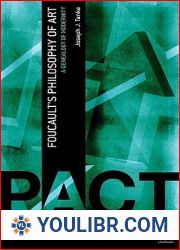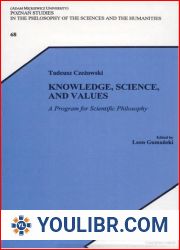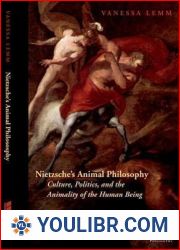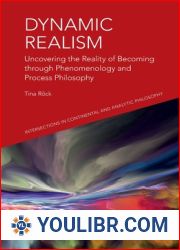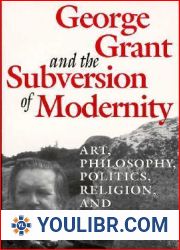
BOOKS - Gluttony and Gratitude: Milton's Philosophy of Eating

Gluttony and Gratitude: Milton's Philosophy of Eating
Author: Emily E. Stelzer
Year: August 4, 2020
Format: PDF
File size: PDF 13 MB
Language: English

Year: August 4, 2020
Format: PDF
File size: PDF 13 MB
Language: English

Gluttony and Gratitude Milton's Philosophy of Eating In the epic poem "Paradise Lost" by John Milton, the story of Adam and Eve's fall from grace is often interpreted as a tale of gluttony and the consequences of overindulgence. However, Emily Stelzer's groundbreaking book "Gluttony and Gratitude: Milton's Philosophy of Eating" challenges this traditional view and offers a fresh perspective on the theme of eating in the poem. Stelzer argues that Milton's portrayal of gluttony is not just a simple cautionary tale, but rather a complex philosophical concept that informs the content of the poem and shapes his vision of human nature and the cosmos. Through a careful examination of contextual material from fields such as physiology, philosophy, theology, and literature, Stelzer reveals the significance of gluttony in Milton's work and its connections to other influential texts like Gower's "Confessio Amantis" and Augustine's "City of God. " She demonstrates how Milton's gluttony functions as an epistemological category that informs his understanding of human nature and the world around us.
Обжорство и благодарность Философия еды Мильтона В эпической поэме Джона Мильтона «Потерянный рай» история о падении Адама и Евы от благодати часто интерпретируется как рассказ о обжорстве и последствиях чрезмерного увлечения. Однако новаторская книга Эмили Стельцер «Обжорство и благодарность: философия питания Мильтона» бросает вызов этому традиционному взгляду и предлагает свежий взгляд на тему питания в поэме. Стельцер утверждает, что изображение обжорства Мильтоном - это не просто предостерегающая история, а скорее сложная философская концепция, которая информирует содержание поэмы и формирует его видение человеческой природы и космоса. Посредством тщательного изучения контекстуального материала из таких областей, как физиология, философия, теология и литература, Штельцер раскрывает значение обжорства в творчестве Мильтона и его связи с другими влиятельными текстами, такими как «Confessio Amantis» Гауэра и «City of God» Августина. "Она демонстрирует, как обжорство Мильтона функционирует как гносеологическая категория, которая информирует его о понимании человеческой природы и окружающего мира.
La gourmandise et la gratitude Philosophie alimentaire de Milton Dans le poème épique de John Milton « paradis perdu », l'histoire de la chute d'Adam et Ève de grâce est souvent interprétée comme un récit de la gourmandise et des conséquences d'une passion excessive. Cependant, le livre pionnier d'Emily Stelzer, « La gourmandise et la gratitude : la philosophie nutritionnelle de Milton », remet en question ce point de vue traditionnel et offre un regard nouveau sur le thème de la nutrition dans le poème. Stelzer affirme que l'image de la gourmandise de Milton n'est pas seulement une histoire d'avertissement, mais plutôt un concept philosophique complexe qui informe le contenu du poème et forme sa vision de la nature humaine et du cosmos. Par une étude approfondie du matériel contextuel provenant de domaines tels que la physiologie, la philosophie, la théologie et la littérature, Stelzer révèle l'importance de la gourmandise dans l'œuvre de Milton et ses liens avec d'autres textes influents tels que Confessio Amantis de Gauer et City of God d'Augustin. "Elle montre comment la gourmandise de Milton fonctionne comme une catégorie épistémologique qui l'informe de la compréhension de la nature humaine et du monde qui l'entoure.
Glotonería y gratitud Filosofía de la comida de Milton En el poema épico de John Milton «paraíso perdido», la historia de la caída de Adán y Eva de la gracia se interpreta a menudo como un relato de la glotonería y las consecuencias de una fascinación excesiva. n embargo, el libro pionero de Emily Stelzer «Glotting and Thanksgiving: La filosofía de la nutrición de Milton» desafía esta visión tradicional y ofrece una visión fresca del tema de la nutrición en el poema. Stelzer sostiene que la representación de la glotonería por Milton no es sólo una historia de advertencia, sino más bien un concepto filosófico complejo que informa el contenido del poema y forma su visión de la naturaleza humana y el cosmos. A través de un cuidadoso estudio del material contextual de campos como la fisiología, la filosofía, la teología y la literatura, Stelzer revela la importancia de la glotonería en la obra de Milton y su relación con otros textos influyentes como la «Confessio Amantis» de Gower y la «Ciudad de Dios» de Agustín. "Demuestra cómo la glotonería de Milton funciona como una categoría epistemológica que le informa sobre la comprensión de la naturaleza humana y el mundo que le rodea.
Gratitudine e gratitudine La filosofia del cibo di Milton Nella poesia epica di John Milton, «Paradiso perduto», la storia della caduta di Adamo ed Eva dalla grazia è spesso interpretata come un racconto di bruciore e conseguenze di una passione eccessiva. Ma il libro innovativo di Emily Stelzer, «Gratitudine e gratitudine: la filosofia nutrizionale di Milton», sfida questo tradizionale sguardo e offre una visione fresca del tema dell'alimentazione nella poesia. Stelzer sostiene che l'immagine del bruciore di Milton non è solo una storia di avvertimento, ma piuttosto un complesso concetto filosofico che informa il contenuto della poesia e ne forma la visione della natura umana e dello spazio. Attraverso uno studio approfondito del materiale contestuale di aree come la fisiologia, la filosofia, la teologia e la letteratura, Stelzer rivela il significato del bruciore nell'opera di Milton e il suo legame con altri testi influenti come «Confesio Amantis» di Gauer e «City of God» di Augustine. "Essa dimostra come il bruciore di Milton funzioni come una categoria gnoseologica che lo informa della comprensione della natura umana e del mondo circostante.
Völlerei und Dankbarkeit Miltons Essensphilosophie In John Miltons epischem Gedicht „Paradise t“ wird die Geschichte vom Fall Adams und Evas von der Gnade oft als eine Geschichte über Völlerei und die Folgen übermäßiger Faszination interpretiert. Emily Stelzers bahnbrechendes Buch „Völlerei und Dankbarkeit: Miltons Ernährungsphilosophie“ fordert diese traditionelle chtweise jedoch heraus und bietet im Gedicht einen frischen Blick auf das Thema Ernährung. Stelzer argumentiert, dass Miltons Darstellung der Völlerei nicht nur eine warnende Geschichte ist, sondern ein komplexes philosophisches Konzept, das den Inhalt des Gedichts informiert und seine Vision der menschlichen Natur und des Kosmos formt. Durch eine sorgfältige Auseinandersetzung mit Kontextmaterial aus Bereichen wie Physiologie, Philosophie, Theologie und Literatur offenbart Stelzer die Bedeutung von Völlerei in Miltons Werk und seine Verbindung zu anderen einflussreichen Texten wie Gauers „Confessio Amantis“ und Augustins „Stadt Gottes“. "Es zeigt, wie Miltons Völlerei als erkenntnistheoretische Kategorie funktioniert, die ihn über das Verständnis der menschlichen Natur und der umgebenden Welt informiert.
''
Oburluk ve Minnettarlık Milton'un Yemek Felsefesi John Milton'un epik şiiri "Kayıp Cennet", genellikle Adem ve Havva'nın lütuftan düşme hikayesini oburluğun ve aşırı hoşgörüsüzlüğün sonuçlarından biri olarak yorumlar. Bununla birlikte, Emily Stelzer'in çığır açan kitabı "Oburluk ve Şükran: Milton'un Beslenme Felsefesi'bu geleneksel görüşe meydan okuyor ve şiirdeki beslenme temasına yeni bir bakış açısı sunuyor. Stelzer, Milton'un oburluk tasvirinin sadece uyarıcı bir masal değil, şiirin içeriğini bilgilendiren ve insan doğası ve kozmos vizyonunu şekillendiren karmaşık bir felsefi kavram olduğunu savunuyor. Stelzer, fizyoloji, felsefe, teoloji ve edebiyat gibi alanlardan gelen bağlamsal materyallerin dikkatli bir şekilde incelenmesiyle, Milton'un çalışmalarındaki oburluğun önemini ve Gower'ın "Confessio Amantis've Augustine'in" Tanrı'nın Şehri'gibi diğer etkili metinlerle bağlantısını ortaya koyuyor. Milton'un oburluğunun, insan doğası ve etrafındaki dünya hakkındaki anlayışını bilgilendiren gnoseolojik bir kategori olarak nasıl işlev gördüğünü gösteriyor.
الشراهة والامتنان فلسفة الطعام لميلتون، غالبًا ما تفسر قصيدة جون ميلتون الملحمية «الجنة المفقودة» قصة سقوط آدم وحواء من النعمة على أنها قصة شراهة وعواقب الإفراط في التساهل. ومع ذلك، فإن كتاب إميلي ستيلزر الرائد «الشراهة والامتنان: فلسفة ميلتون للتغذية» يتحدى هذه النظرة التقليدية ويقدم منظورًا جديدًا حول موضوع التغذية في القصيدة. يجادل ستيلزر بأن تصوير ميلتون للشراهة ليس مجرد قصة تحذيرية، ولكنه مفهوم فلسفي معقد يوضح محتوى القصيدة ويشكل رؤيته للطبيعة البشرية والكون. من خلال الفحص الدقيق للمواد السياقية من مجالات مثل علم وظائف الأعضاء والفلسفة واللاهوت والأدب، يكشف ستيلزر عن أهمية الشراهة في عمل ميلتون وارتباطها بالنصوص المؤثرة الأخرى مثل «اعتراف أمانتيس» لجاور و «مدينة الله» لأوغسطين. "توضح كيف تعمل شراهة ميلتون كفئة غنوصية توضح فهمه للطبيعة البشرية والعالم من حوله.








 49
49  3 TON
3 TON



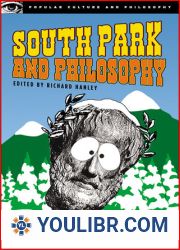
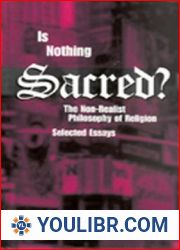



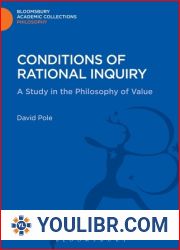
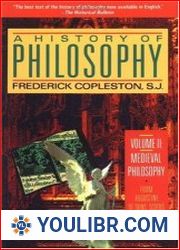
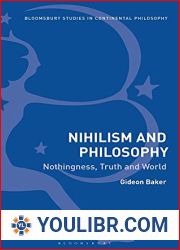
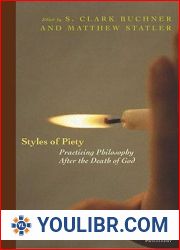
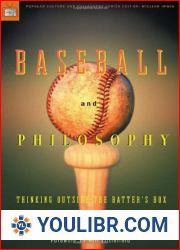
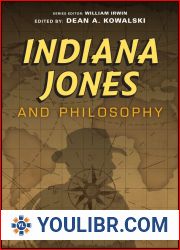
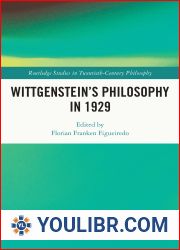
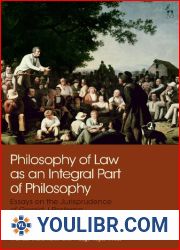
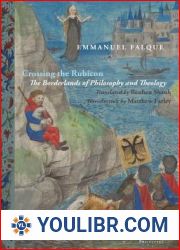
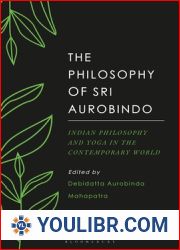
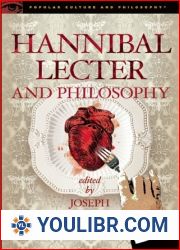



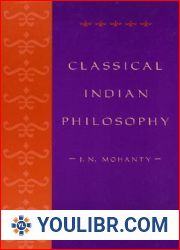
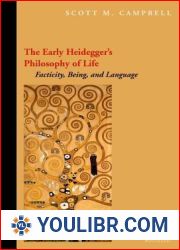
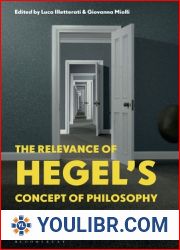
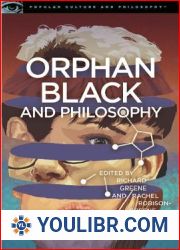
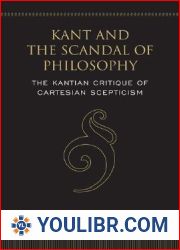

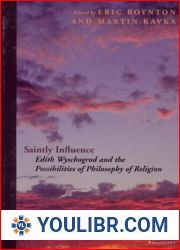

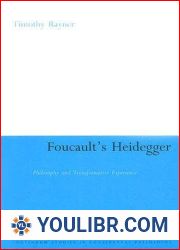
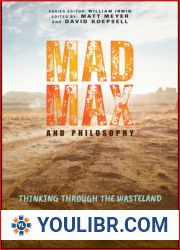
![The Category of the Aesthetic in the Philosophy of Saint Bonaventure [Franciscan Institute Publications, Philosophy Series No. 11] The Category of the Aesthetic in the Philosophy of Saint Bonaventure [Franciscan Institute Publications, Philosophy Series No. 11]](https://youlibr.com/img/5/553214_oc.jpg)

